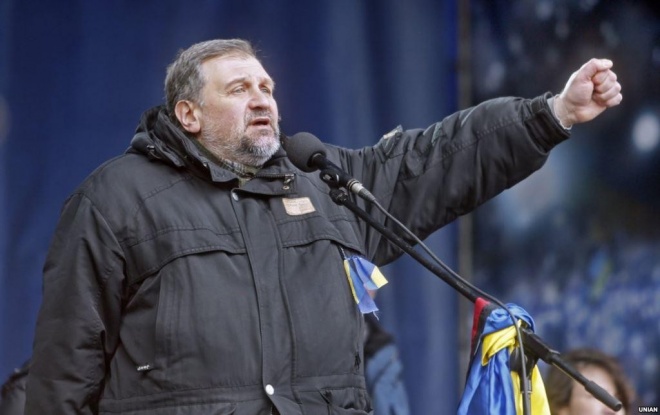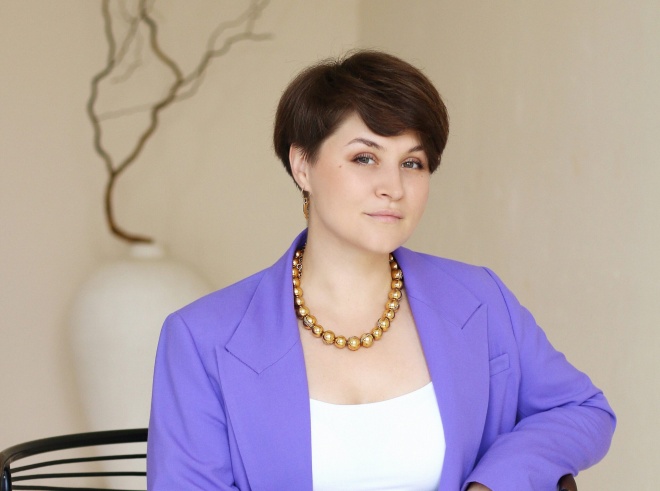Democracy of Cooperation: How Ukrainians Contribute to Transforming the State
Democracy of Cooperation: How Ukrainians Contribute to Transforming the State

How can democratic principles be preserved during the war? How is civil society changing the state from within? And why is everyone’s participation, from volunteers to local council deputies, the foundation of our resilience?
These questions were discussed at the “Democracy of Cooperation” event held within the Travelling Docudays UA. The discussion featured Oleksandra Romantsova, Executive Director of the Center for Civil Liberties and Nobel Peace Prize laureate, and Oleksiy Haran, Doctor of Political Science, Professor at the National University of Kyiv-Mohyla Academy, and Science Consultant at the Democratic Initiatives Foundation. The discussion was moderated by journalist Anastasiya Bahalika.
The full version of the discussion is available at:
From Maidan to War: The Evolution of Ukrainian Democracy
At the beginning of the conversation, the participants outlined the historical context. According to Oleksiy Haran, Ukrainian democracy was not “given” — it emerged from the grassroots, thanks to civic activism:
“Since the Movement for Independence, we have had a unique experience of self-organization. It wasn’t something imposed from above. The Maidans, the volunteer movement, local initiatives — all these are parts of our participatory political culture.” Photo: Oleksiy Haran, Ilko Kucheriav Democratic Initiatives Foundation
Photo: Oleksiy Haran, Ilko Kucheriav Democratic Initiatives Foundation
The political scientist cited data: in 2004, only 42% of Ukrainians believed democracy was the best form of government, while today — nearly 70% do. “Despite the war, support for democracy continues to grow. Because Ukrainians are fighting not only against the occupier, but for their right to be free — and that includes a democratic system,” he noted.
War as a Test and a Catalyst for Democracy
Oleksandra Romantsova emphasized that the war became a radical test of the society’s maturity. On one hand, martial law restricts certain procedures — elections, open parliamentary hearings. On the other hand, society itself has assumed functions previously performed by the state:
“Volunteering, community self-organization, assistance to the army, advocacy for reforms — all these are expressions of participatory democracy. We have proven that we can be effective without directives from above.” Photo: Oleksandra Romantsova, Center for Civil Liberties
Photo: Oleksandra Romantsova, Center for Civil Liberties
In her opinion, democracy of cooperation means that people don’t wait for decisions “from above” but create them themselves. This is how a new quality of trust between citizens and the government is formed.
At the same time, the human rights defender stressed that under the pretext of war, some democratic processes could be suspended — for example, access to public information or media independence.
“Security cannot be an excuse for rolling back democracy. Because if we lose openness and participation, we’ll lose exactly what we are fighting for.”
The Role of Civil Society
Both speakers agreed that a strong civil society is the main guarantee of democracy, even during wartime.
Oleksiy Haran pointed out that it is precisely civil organizations and initiatives that are now performing critical functions of oversight and support:
“Civil society not only helps the army or displaced people — it keeps the state in shape. We see how activists demand accountability, fight corruption, and strengthen local self-government.”
Oleksandra Romantsova added that human rights defenders now perform another crucial function — documenting war crimes and human rights violations. This is not only part of future justice but also a form of civic responsibility.
“When we talk about democracy of cooperation, we mean cooperation between people and between sectors — state, civil, and media. That’s the essence of Ukrainian resilience.”
Democracy in Wartime: How Not to Lose Your Voice
Moderator Anastasiya Bahalika raised the issue of the risks of rolling back democratic processes during wartime: the cancellation of elections, media control, and reduced transparency in decision-making.
Oleksiy Haran emphasized that it’s important to distinguish between temporary restrictions and systemic attempts to usurp power. War requires discipline but not authoritarianism:
“Yes, elections are impossible during war, but that doesn’t mean democracy is suspended. Civil society must remain active, and the government must stay open to dialogue.”
Participation as the Foundation of the Future
In conclusion, the speakers agreed that Ukrainians’ main task today is not to lose their sense of agency. Citizen participation in decision-making is not only a political but also a moral duty.
“Democracy is not about elections once every five years. It’s about daily participation, cooperation, and responsibility. About being ready not only to demand but also to act,” said Oleksandra Romantsova.
We Are Democracy of Cooperation
Ukrainian democracy is living through the most difficult yet most mature period in its history. We have learned to build horizontal connections, trust one another, and act together. This is what gives us the chance not just to survive but to transform the country.
“We are showing the world that democracy is not a luxury of peacetime, but something that helps us endure during war,” concluded Anastasiya Bahalika.
The Travelling Docudays UA continues discussions on democracy, human rights, and civic participation across different regions of Ukraine. Because true democracy is not only about politics — it’s about every one of us.
The 22nd Travelling Docudays UA is held with the financial support of the European Union, the Embassy of Sweden in Ukraine, and International Media Support. The opinions, conclusions, or recommendations expressed do not necessarily reflect the views of the European Union, the governments, or charitable organizations of these countries. Responsibility for the content of this publication lies solely with its author(s).












